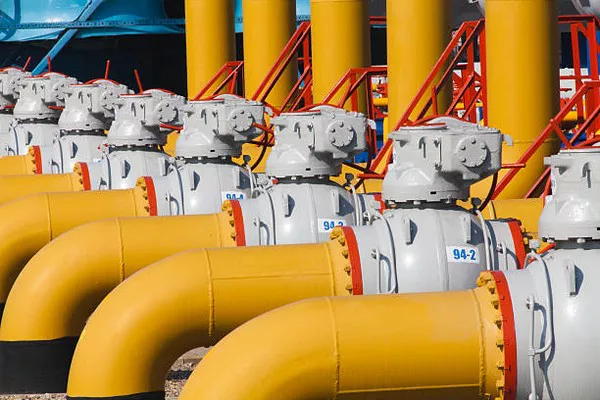Compressors are versatile machines that play a pivotal role in various industrial, commercial, and domestic applications. These mechanical devices are designed to reduce the volume of gases or fluids by increasing their pressure, making them indispensable in numerous fields. In this article, we will delve into the fundamental principles of compressors, explore their types, and examine their wide-ranging applications.
The Science Behind Compressors
To comprehend the utility of compressors, it’s essential to grasp the basic principles governing their operation. Compressors work on the fundamental thermodynamic principle of Boyle’s law, which states that the pressure of a gas is inversely proportional to its volume at a constant temperature. In other words, when you reduce the volume of a gas, its pressure increases.
Compressors harness this principle to compress gases or fluids, leading to an increase in pressure. They achieve this by using mechanical work to decrease the volume of the gas, resulting in elevated pressure. This rise in pressure makes compressors indispensable in numerous applications across different industries.
Types of Compressors
Compressors come in various types, each designed to cater to specific needs and operational requirements. The primary types of compressors are as follows:
Reciprocating Compressors: These compressors use a piston-cylinder mechanism to compress gases. Reciprocating compressors are common in industries where moderate to high pressure ratios are required, such as in natural gas processing, refrigeration, and petrochemical applications.
Rotary Screw Compressors: Rotary screw compressors use helical screws to compress gases. They are known for their efficiency and reliability, making them popular in industrial settings, including automotive, manufacturing, and construction.
Centrifugal Compressors: Centrifugal compressors operate by accelerating gas to high speeds and then slowing it down in a diffuser to convert kinetic energy into pressure. They are commonly used in applications requiring high flow rates and relatively low pressure ratios, such as HVAC systems and power plants.
Scroll Compressors: Scroll compressors are widely used in residential and small commercial air conditioning and refrigeration systems. They are known for their quiet operation, efficiency, and compact size.
Axial Compressors: Axial compressors are typically used in aircraft engines and gas turbines. They operate on the principle of axial flow, where air flows parallel to the compressor axis, undergoing multiple stages of compression.
Diverse Applications of Compressors
The versatility of compressors extends to a multitude of applications, ranging from everyday household appliances to critical industrial processes. Here are some of the most common and significant applications of compressors:
Air Conditioning and Refrigeration: Compressors are integral to air conditioning and refrigeration systems. They circulate refrigerants, compressing them to remove heat from indoor spaces or cooling refrigerated goods. Scroll compressors are often used in residential air conditioners, while larger industrial systems employ rotary and centrifugal compressors.
Industrial Manufacturing: The manufacturing industry relies on compressors for various tasks, such as pneumatic tools, powering assembly lines, and providing compressed air for machinery. Reciprocating and rotary screw compressors are frequently used to meet the specific pressure requirements of industrial processes.
Oil and Gas Industry: Compressors are crucial in the extraction, processing, and transportation of natural gas and oil. They are used in gas processing plants to boost gas pressure for pipeline transportation and to separate various components. Centrifugal and reciprocating compressors are prevalent in these applications.
Power Generation: Compressors play a significant role in power plants, specifically in gas turbine power generation. Gas turbines use axial compressors to compress air before combustion, which enhances energy efficiency and power output.
Aerospace and Aviation: Aircraft engines rely on axial and centrifugal compressors to compress air before combustion. This compressed air is essential for efficient jet propulsion.
Pharmaceutical and Food Industries: Compressors are used for packaging, filling, and sealing operations in the pharmaceutical and food industries. They ensure products remain contamination-free by providing a sterile environment for these processes.
Mining and Construction: Compressors power pneumatic tools and equipment used in construction and mining operations, such as jackhammers, drills, and air-powered machinery. The reliability of rotary screw compressors makes them suitable for these rugged environments.
Wastewater Treatment: Compressors are employed in wastewater treatment plants to provide aeration for biological treatment processes. The compressed air encourages the growth of beneficial microorganisms that break down organic matter.
Automotive Industry: Compressors are used in automotive manufacturing for painting, welding, and other assembly line operations that require pneumatic tools and machines.
Healthcare: Compressed air is a crucial component in medical equipment, such as ventilators and anesthesia machines, ensuring the precise and controlled delivery of oxygen and other gases.
Natural Gas Storage and Transportation: In the natural gas industry, compressors are used to pressurize gas for storage and transportation through pipelines. These applications demand high-pressure reciprocating compressors and sometimes centrifugal compressors for gas boosting.
Conclusion
Compressors are invaluable devices that find application in a wide range of industries, from everyday household appliances to critical industrial processes. Understanding the science behind compressors, the various types available, and their diverse applications is crucial to appreciating their importance in modern society.
The efficiency, reliability, and adaptability of compressors make them a cornerstone of many industries, enabling the transportation of energy, the manufacturing of goods, and the maintenance of comfortable living conditions. As technology advances, we can expect compressors to continue to evolve, offering even more efficient and sustainable solutions to meet the growing demands of our world.

